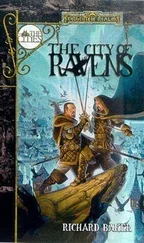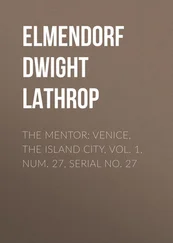“Physics develops so quickly,” he said all of a sudden, “that within six months all knowledge is outdated. They become hallucinations, forms that spring forth from memory. The moment you remember them, they are already lost.”
He had had a serious illness and had stopped pretending he was European, and from the moment he became a naturalized citizen everyone started thinking that he was an Austrian, Hungarian, or German who pretended he was from Argentina, and they made him out to be a Nazi physicist hiding in the Tigre, an assistant of Von Braun, a disciple of Heidelberg. “You should not try to be one thing so that people will think that you are something else, if you know what I mean. If you are an anarchist, then be an anarchist, and they will assume that you are an undercover policeman and you will never get caught. If you are who you truly are, then everyone believes you are somebody else.” He even knew quite well that it was now being said that he was really Richter, the atomic physicist who had tricked General Perón by selling him the secret to make an atom bomb in Argentina. “But no,” he said, “I am the Russian.” He had studied Richter’s personality because he was amused by the deception he had been able to pull off, “a true virtuoso job,” but he was the Russian, an Argentine inventor who made a living selling small practical devices, cheap patents of simple machines that helped improve demand in hardware and general grocery stores in small towns.
“Look at this, for example,” he said, and showed him a pocket watch. Then he opened it, wound it up, and the face became a magnetic chessboard with microscopic pieces that were reflected and amplified by a magnifying mirror on the concave glass top. “It is the first chess-playing machine designed in Argentina,” the Russian said. “In La Plata, to be precise. It uses the gears and the small clock wheels to program its moves. The hours are its memory. It has twelve options per move, and it was with this very apparatus that I defeated Larse the time he came to play in the Masters Tournament in Mar del Plata, in 1959.” He pressed a button on one of the wheels, and the clock became a clock again. “Inventing a machine is easy, as long as you can modify the parts of a previous mechanism. The possibilities of converting what already exists into something else are infinite. But I would not be able to make something out of nothing. In that respect, I am not like Richter. You cannot compare my discovery with Richter’s invention, he built an atomic plant for Perón using only words, just with the reality of his German accent. He told him he was an atomic scientist and that he had the secret to make the bomb, and Perón believed him and fell like a fool, and had underground buildings and useless labs with pipes and turbines built for him that were never used. Perón would stroll through the marvelously decorated facilities while Richter, with a strong German accent, explained his wild plans of how he would produce nuclear fission in a cold environment. He won him over with his story, he was just a poor high school physics teacher, and he was not even German, he was actually Swiss, and Perón, who spent his life surpassing everyone, who spent his time nudging and winking and saying things with double meanings, believed Richter’s fantastic story and defended it to the end. After all, though, it is the same thing, I mean, for Macedonio that was the basic principle to building the machine. The fiction of a German accent. Everything is possible, all you have to do is find the right words. When he found me, he immediately convinced me that we should start working together.
“Look,” he said, “politicians believe scientists (Perón-Richter), and scientists believe novelists (the Russian-Macedonio Fernández). Scientists are big readers of novels, the last representatives of a nineteenth-century public, the only ones who really consider the uncertainty of reality and the form of a story. Physicists, Macedonio would say, added the quarks to the basic particle of the universe, in homage to Joyce’s Finnegans Wake. The only friend Einstein had at Princeton, his only confidant, was the novelist Hermann Broch, whose books, especially The Death of Virgil, he could quote from memory. The rest of the world spends its time believing superstitions on television. The criteria of reality,” the Russian said, “has crystallized and become concentrated, and that is why they want to deactivate the machine. I am sure you know the story of the Japanese soldier who stayed in the jungle fighting the American army for thirty years without surrendering. He was convinced that the war was eternal, that he had to avoid getting ambushed and keep moving constantly through the island until he made contact with his own forces. He grew old as he roamed around, eating lizards and weeds, sleeping in a straw hut, climbing up a tree during the typhoon season and tying himself to the branches. The fact of the matter is that that is how war is, and the soldier was only doing his duty, and, except for a nearly microscopic detail (the signatures on a piece of paper declaring peace), his entire universe was real. When they found him he did not know how to speak anymore, he just repeated the oath of the Imperial Army in which he swore to fight to the end. Now he is a ninety-year-old man, exhibited in the Museum of the Second World War, in Hiroshima, dressed in his threadbare officer’s uniform of the emperor’s army, holding a rifle with a bayonet at waist level, in fighting stance.
“Macedonio captured very clearly the direction of the new situation. If politicians believe scientists, and scientists believe novelists, then the conclusion was simple. It was necessary to effect reality and use scientific methods to invent a world in which it is not possible to have a soldier who spends thirty years in a jungle following orders, or at least a world in which the soldier no longer serves as an example of conviction and a sense of duty that is reproduced by Japanese executives and workers and technicians who are living the same fiction today, on a different scale, and who are always presented as the representatives of modern man. Macedonio’s main enemy was the Japanese model of feudal suicide, with its paranoid politeness and its Zen conformity. They build electronic devices and electronic personalities and electronic fictions and in every State of the world there is a Japanese brain giving orders. The State intelligence is essentially a technical mechanism designed to alter the criteria of reality. We have to resist. We are trying to build a microscopic replica, a female defense machine, against the experiences and the experiments and the lies of the State.
“Look,” he said, and raised his hand in a gesture that encompassed the trees and the nearby islands, “there are microphones and cameras and policemen hidden everywhere, they watch and record us around the clock. I do not even know if you yourself are a journalist or a spy, or both things at once. It does not matter, I have nothing to hide, they know where I am, and if they do not come it is because I am already outside the law. The State knows all the stories of all the citizens, and retranslates them into new stories that are then told by the president of the republic and his ministers. Torture is the culmination of that desire to know, the maximum degree of institutional intelligence. That is how the State thinks, and why the police mainly torture the poor, only the poor or the workers or the dispossessed, who you can see are darker-skinned or mestizos, they are tortured by the police and by the military. Only in very exceptional cases have they tortured people belonging to other social classes, and these cases have always become major scandals, like when Bravo, the student, was tortured by Amoresano and Lombilla in the time of General Perón. Because when they decide to torture people of slightly higher social standing, it always leads to a scandal, and in the last few years, in which the Army has acted with a homicidal and paranoid rancor, and men, women, and children belonging to distinguished spheres of society have been tortured and brutalized, everything has been denounced and has become known. And even if, of course, the largest number of those killed were workers and peasants, they have also executed priests, landowners, industrialists, students, and at the end they had to retreat before international pressure, which accepts as a given that the humble from the fields, the wretched and feverish from the ghettos and the poorest neighborhoods of the city will be massacred and tortured, but reacts when intellectuals and politicians and the children of well-to-do families are treated this way. Because, in general, the latter already collaborate of their own accord and serve as an example and adapt their lives to the criteria of reality established by the State, without there being any need to torture them. The others would do the same, but they cannot because they have been leveled and cornered, and even if they wanted to and took great pains to that end, they can no longer act like the model Japanese citizen who works fifteen hours per day and always greets the general manager of his company with the slightest of nods. They control everything, they have founded the mental State,” the Russian said, “which is a new stage in the history of institutions. The mental State, the imagined reality, we all think like they do and imagine what they want us to imagine.
Читать дальше












